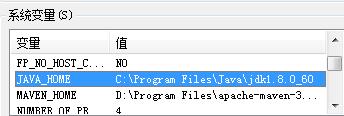I know that the ECMA Script specification does not specify which algorithm to use for sorting arrays, nor does it specify whether the sort should be stable.
I\'ve found this information for Firefox which specifies that firefox uses a stable sort.
Does anyone know about IE 6/7/8, Chrome and Safari?
Simple test case (ignore the heading, second set of numbers should be sequential if the engine\'s sort is stable).
IE\'s sort has been stable as long as I\'ve ever used it (so IE6). Checking again in IE8 and it appears to still be the case.
And although that Mozilla page you link to says Firefox\'s sort is stable, I definitely say this was not always the case prior to (and including) Firefox 2.0.
Some cursory results:
- IE6+: stable
- Firefox < 3: unstable
- Firefox >= 3: stable
- Chrome < 70: unstable
- Chrome >= 70: stable
- Opera < 10: unstable
- Opera >= 10: stable
- Safari 4: stable
- Edge: unstable for long arrays
All tests on Windows.
See also: Fast stable sorting algorithm implementation in javascript
I\'d like to share a trick I routinely use in C/C++ for qsort().
JS\' sort() allows to specify a compare function. Create second array of the same length and fill it with increasing numbers from 0.
function stableSorted(array, compareFunction) {
compareFunction = compareFunction || defaultCompare;
var indicies = new Array(array.length);
for (var i = 0; i < indicies.length; i++)
indicies[i] = i;
This are indexes into the original array. We are going to sort the second array. Make a custom compare function.
indicies.sort(function(a, b)) {
It will get the two elements from the second array: use them as indexes into the original arrays and compare the elements.
var aValue = array[a], bValue = array[b];
var order = compareFunction(a, b);
if (order != 0)
return order;
If elements happen to be equal, then compare their indexes to make the order stable.
if (a < b)
return -1;
else
return 1;
});
After the sort(), the second array would contain indexes which you can use to access the elements of original array in stable sorted order.
var sorted = new Array(array.length);
for (var i = 0; i < sorted.length; i++)
sorted[i] = array[indicies[i]];
return sorted;
}
// The default comparison logic used by Array.sort(), if compareFunction is not provided:
function defaultCompare(a, b) {
a = String(a);
b = String(b);
if (a < b) return -1;
else if (a > b) return 1;
else return 0;
}
In general, stable sort algorithms are only maturing and still require more extra memory compared to the good ol\' qsort. I guess that\'s why very few specs mandate stable sort.
As of V8 v7.0 and Chrome 70, our Array.prototype.sort implementation is now stable.



